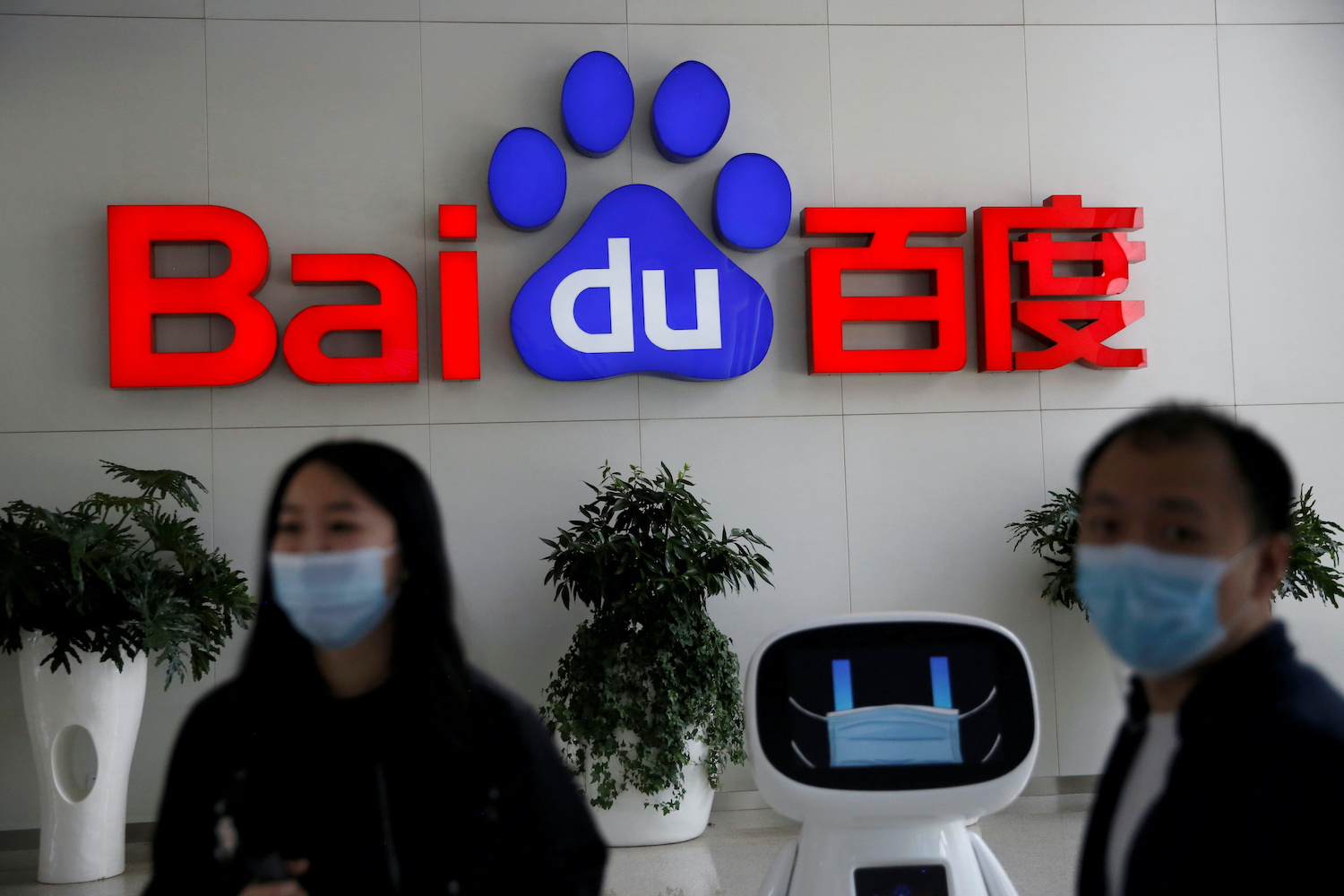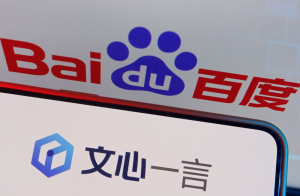(ATF) China’s Baidu Inc reported fourth-quarter (Q4) results with revenue and earnings ahead of Wall Street expectations.
Meanwhile, the company forecast revenues for Q1 that topped estimates as efforts by China’s version of Google to diversify into the cloud and artificial intelligence (AI) businesses start to pay off.
The results come as Baidu beefs up its autonomous and smart transport technology to tap into the fast-growing electric-vehicle (EV) market. Last month, it said it would set up a smart electric vehicle (EV) company with Geely.
Read more: Malaysia factory bosses ordered to Covid-proof migrant labour lodgings
Founder and chief executive Robin Li said during the earnings call that Baidu has decided a CEO and brand for the EV venture, adding that the company would try to launch a new EV model in about three years.
Li told analysts that Baidu’s Apollo-powered software will help differentiate its EV from rivals, predicting that the first EV will have “the best autonomous driving and infotainment capabilities” in the market.
Baidu’s autonomous driving unit in December received permission by Beijing to conduct fully driverless road tests. Last month, it also received a permit to test driverless vehicles on public roads in California.
Baidu’s total revenue rose 5% to 30.26 billion yuan ($4.69 billion) in Q4, topping analysts’ average estimate of 30.06 billion yuan ($4.65 billion), according to IBES data from Refinitiv.
Excluding items, Baidu earned 20.08 yuan ($3.1) per ADS, beating estimates of 16.89 yuan ($2.6).
TECHNOLOGY TITANS
Once one of China’s big three technology titans alongside Alibaba Group and Tencent Holdings, Baidu is playing catch-up as the country’s internet users increasingly shift from desktop to mobile.
With up-and-coming rivals like TikTok owner ByteDance taking a larger share of China’s online advertising market, the company is re-positioning itself as an AI tech provider.
The company’s core R&D investment was equivalent to around 21% of its 2020 revenue, founder Robin Li said in an internal memo viewed by Asia Times Financial.
Ranking the first in China in terms of the number of AI patent applications and authorisations for the last three years, Baidu will seize opportunities in digitalising the finance, energy, industrial and transport sectors, Li added.
CLOUD SERVICES
Growth of revenue from non-advertising businesses, which include cloud services, autonomous driving, and smart transportation, far outpaced that from the core business although it only accounted for 13.7% of the total revenues. It reached 4.2 billion yuan ($649 million) in Q4, with a 52% year-on-year growth.
Among non-advertising businesses, Baidu AI cloud services reported a 67% YoY growth in Q4, reaching an annualised revenue of $2.0 billion, which shows the company’s years of investment in AI is paying off, said Herman Yu, chief finance officer of Baidu.
However, Baidu’s streaming affiliate, iQIYI, saw subscribers fall by 3.1 million to 101.7 million by December, when compared with the Q3. Revenue from the Netflix-style platform fell 0.5% in Q4, a second consecutive quarter of declines as Chinese internet users shifted to other social media services like ByteDance’s Douyin. Sales this quarter may drop as much as 8%, the company said.
NET INCOME
For the full year of 2020, Baidu reported RMB 107 billion ($16.4 billion) in total revenues, flat from a year earlier, and generated RMB 22 billion ($3.38 billion) in net income under non-GAAP terms, up 21% YoY.
Baidu said it expects Q1 revenue of between 26 billion yuan ($4.02 billion) and 28.5 billion yuan $(4.4 billion), above expectations of 25.79 billion yuan ($3.99 billion).
Baidu core revenue is expected to grow between 26% and 39% YoY, which is higher than Jefferies’s estimate of 17% YoY.
“As we enter 2021, Baidu is well positioned as a leading AI company with strong internet foundation to seize the huge market opportunities in cloud services, autonomous driving, smart transportation, and other AI opportunities. We also hope to capitalise on our huge Internet reach with more non-marketing services,” said Liu.
SHARES SURGE
Shares of Baidu have surged nearly threefold from their March lows as China’s rebound from the pandemic drove ad spending and the company took steps to monetise its suite of AI technologies. The stock gained more than 3% in after-hours trading.
Baidu apps accounted for 8% of Chinese users’ time spent in December, half that of ByteDance’s 16% share, according to researcher QuestMobile.
To compete, Baidu’s flagship search app is transforming into an all-encompassing social platform similar to Tencent’s WeChat. The company last week completed the $3.6 billion acquisition of Joyy Inc.’s YY Live live-streaming network.
Baidu’s revenue forecast for Q1 does not include potential contribution from the acquisition of YY Live, the company said.























